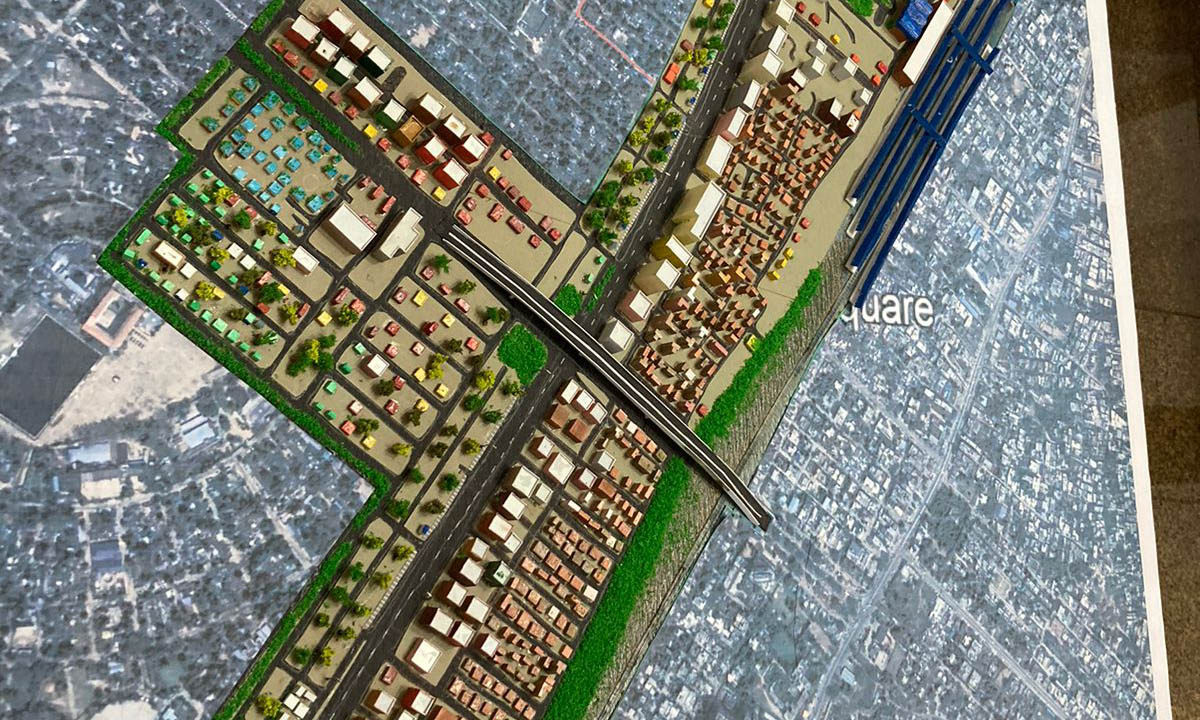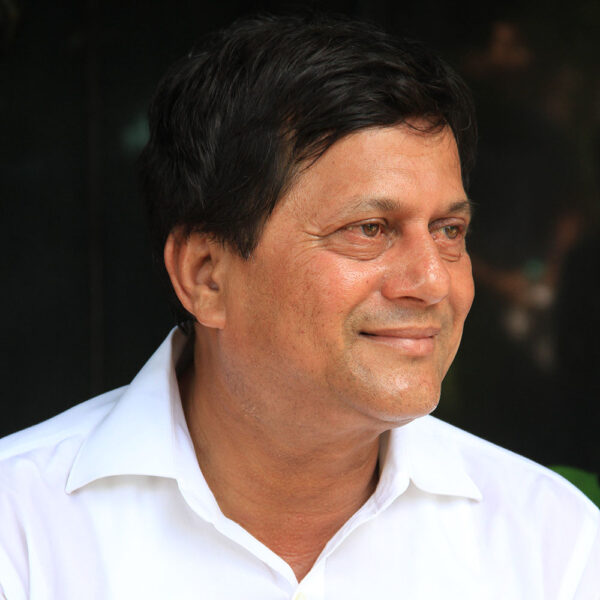Academic Programmes
Bachelor of Architecture (B.Arch.)

Pedagogy
Since it focuses on “Learning by Making” the teaching program focuses on building professional capacity through real-life problems, workshops and interactions with renowned professional architects. The coursework, seminars and research assignments are aimed at developing creative and analytical abilities of students. KSAP cherishes the individual interests and abilities of its students. Regular visits to building construction sites, galleries, and architectural exhibitions are organized in order to help expose our students to the immediate context that they are engaging with. This helps to increase their understanding of the multidisciplinary nature of architectural practice and the ground reality of any project. Annual study trips are organized for the students across the years, enabling them to engage, observe and respond to the varying urban or rural contexts that they are exposed to.
Organizational Structure
Teaching in all subjects is regularly monitored and is updated periodically in its Board of studies to keep up with changing industry demands.
Choice Based Curriculum
To enable each student to chart a unique course of study and realize his or her own individual potential, students can choose four electives from a wide range of elective courses. Spread over five years, the total number of credits is 234 and teaching hours are 257. To this extent the teachers are mentors whose role is to support individual students in their explorations and in their capacity-building endeavors.
- To remain at the forefront of technology and keep themselves abreast with the latest trends and use it to make informed decisions through planning, design and implementation
- Understand the built environment issues to find solutions through appropriate skills of design, engineering services, technology, behavioural studies, etc.
- To recognise the challenges of environmental depletion and arm themselves with the right approach to protect, nurture and restore the damage through sustainable principles.
- To be a champion for social good and inclusiveness and engage themselves with ethical practices.
- To be aware of resources and their uses.
- To recognise the deep-rooted heritage of human civilisation and be an ambassador of historic preservation and take the cultural values to a new level.
- To have participation of professionals & Industry experts from core and allied areas, International Partnerships and Industry Collaborative workshops , Training the trainers by Industry, Joint Publications, Participation in Student competitions
- To inculcate best practices in pedagogy with Innovating use of technology
- Design development ( Architectural, Structural and Services) solutions.
- Innovation
- Creative Thinking and analysis
- Problem analysis and solving
- Barrier free, child friendly, salutogenic design
- Project Management skills
- Urban and Rural Planning
- Landscape Design
- Independent practice ability, community and team work.
- Ethics, life long learning and team working
- Art and Aesthetics
- Environment and Sustainability
- Computational and Software Skills
- Resilient Architecture
- Historic Conservation and Preservation
Masters of Architecture (M.Arch.)

Pedagogy
The M.Arch (with specialization in Urban Design) program focuses on building professional capacity through real-life problems, workshops and interactions with renowned Urban Experts. The coursework, seminars and research assignments are aimed at developing creative and analytical abilities of students. KSAP cherishes the individual interests and abilities of its students. The course focuses on the process of learning which will enable the students to have in-depth understanding of cities, particularly of Indian cities, through research, documentation and urban design interventions. The students are mentored to develop a holistic view of the city as a basis for designing the city/city components in the third dimension to address the various urban design issues through studio exercises, sponsored research and publications in collaboration with other institutions.
Organizational Structure
Teaching in all subjects is regularly monitored and is updated periodically in its Board of studies to keep up with changing industry demands. Feedback regarding the course contents, syllabus and pedagogic methods is ensured, to constantly improve the course.
Course Objective
Contextual study of urban design and its components which is culture specific and fuses rational planning and sustainable approaches with heritage values.
PEOs
The Post Graduate Programme is designed-
- To keep architects at the forefront of technology with knowledge and skill-sets in collaboration with professionals & industry experts from core and allied areas to be effective stakeholders and leaders in policy and decision-making in order to address emerging challenges of mega cities.
- To impart value-multiplier skill-sets within emerging urban practitioners and evolve new methods of pedagogy in the programme through multidisciplinary collaborations, development of research materials and training modules for professionals and academicians.
- To develop keen understanding regarding the environmental issues caused by rapid and unplanned urbanization primarily in south and south-east Asian context, and steer towards the appropriate approach to protect, nurture and restore the ecological balance through sustainable principles of SDG 11.
- To provide architects with requisite knowledge of the deep-rooted historic, socio-economic and cultural values of human civilization enabling them to become champions for social good and inclusiveness and engage themselves with ethical practices.
POs
On successful completion of the programme post-graduates should be able to –
- contribute to an in-depth understanding of cities, particularly of Indian cities, through research, documentation, analysis and critical thinking.
- demonstrate sensitivity towards the societal and cultural values through responsible and pragmatic solutions to urban issues.
- engage with society & civic agencies for resolving urban & environmental concerns with specialized skill-sets aligned with industry requirements.
- address the various urban design issues faced by the host city, Bhubaneswar and cities within similar regional context, through studio exercises, sponsored research in collaboration with different organizations from industry and academia.
- develop a holistic view of the city in order to resolve urbanization challenges and developmental issues.
- add to the global knowledge bank on urban developments through primary/ secondary research, theoretical pursuits and publications.

